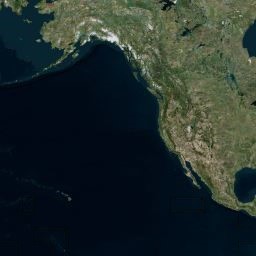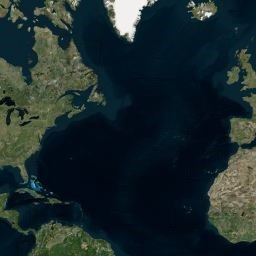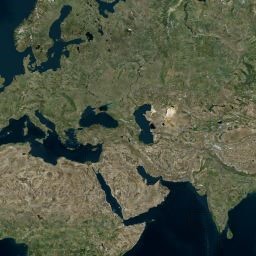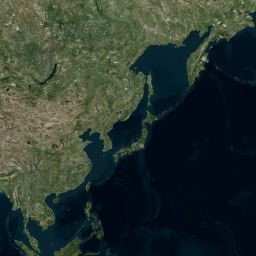More than a billion people around the world are connected to the net, but speed of access ranges from dial-up to fibre optic connections. Use this map to explore the state of our Broadband World across eight different countries, as explained by BBC correspondents and reporters. WORLD BROADBAND See also: Frequently asked questions - I can't get the map to work. If you're having problems with the map, let us know using the feedback form below. Don't forget to tell us which browser you are using, and try to be precise about what went wrong. We are aware that a small number of people are presented with a blank map of the US, or no map at all, and are working to resolve those problems. |
Popular Posts
-
Nicolas Sarkozy, the law-and-order Interior Minister who wants to be France's next President, rarely passes up a chance to speak b...
-
The Future of Political Blogging: 6 Predictions, by David Kline ...
Tuesday, May 26, 2009
Broadband World: Mapping the global picture
Monday, May 25, 2009
Dr Paul Twomey, president of the internet admin body Icann, talks about the net's potential for change.
New worlds
Having said that, it's already clear where the next wave of internet growth and innovation will come from. It will come from the world's developing economies, and it won't even be reliant on access to personal computers.
Worldwide, we're seeing an unprecedented expansion of internet networks, driven most recently by convergence with mobile communications.
 The next generation of net users will be in developing nations |
This represents a revolutionary shift in the provision of information and empowerment to individuals throughout the world. Ten years ago, 100 million people used the internet. Today it is 1.4 billion.
By the end of 2010, 5 billion people will have a mobile phone. Many of these will be internet enabled.
The consequence of this growth and convergence is an enormous democratisation and devolution of decision-making throughout the globe, especially within the developing world. India alone has a handset uptake of 9 million per month.
The expansion of mobile networks, combined with the latest smartphone and other internet enabled devices, are enabling developing economies to leapfrog traditional technologies and remove barriers to entry to the global economy for their citizens and businesses.
Married to the introduction of new generation operating systems, like Google's Android and the IPhone, this mobile internet revolution is going to greatly expand the commercial, social, and political feedback loops which the internet enables and fosters.
This is transformative for the way governments and companies need to consider how information is gathered, analyzed, and acted on. In a truly networked world, decisions need to be made on real time data, reflecting network effects of complex "eco-systems". Imagine Facebook meets the national bureaus of statistics.
This revolution is particularly important for the services sector of the global economy. As Alan Greenspan noted in the 1990s, the first major impact of the internet in the US economy was in helping to drive down inventories across the supply chain in goods.
The manufacturing and retail sectors have continued to use these networks to enable greater transparency of information across global trading networks; hence, spurring continued globalization, lower costs, and economic growth.
The services sector has not been as agile. Indeed, in major parts of the professional service sectors, health care, and government services, the full promise of information flows across fully networked sectors has not yet been achieved. This should be a major focus for policy makers considering about how to get the full economic benefits from the growth in data networks.
Growth pains
The implications of the rapid penetration of the internet are staggering. If current industry estimates prove correct, there will be 1.5 billion new internet users in the next two to three years - just over double the number of current users.
And these networked ecosystems will not just be human. We are moving into a realm of the machine-to-machine internet.
 Few predicted what the web would become, or its impact |
The introduction of Internet Protocol (IP) version 6 into common usage means that the address space available to connect devices to the net is growing from 4.2 billion with IPv4 to 340 trillion, trillion, trillion addresses. With pervasive wireless connectivity, this means everything can talk to everything.
Car and aircraft manufacturers are already preparing for components to be tracked and provide performance reporting through the Net. Such a pervasive public internet will also support private trading networks, using Radio Frequency ID technology, for tracking physical objects through the supply chains of the world.
While the internet unites people, the very nature of its rapid expansion has produced stresses that threaten to fragment it. One force for fragmentation could be political, whether motivated by cultural norms or fear of dissent; it is essential not to confuse the content debates with the underlying global addressing and routing system.
Another stress could be linguistic fragmentation. Here the role of Internationalized Domain Names is essential to ensure a globally unified Domain Name System, while enabling linguistic localization. There are also technical and business drivers.
The boundary between the traditional PC-based internet enjoyed by 1.3bn people (largely in the developed world) and the mobile communications (used by billions in developed and less-developed countries) is still somewhat ragged.
We need to ensure that carriers or device manufacturers do not impose "walled gardens" that block users from the benefits of the "innovation at the edge" model of the internet.
Despite these concerns, I remain hopeful that with appropriate attention by leading governments, business and civil society these forces can be managed.
In the coming years, it is going to be vital that we avoid fragmentation and maintain a single interoperable internet. To achieve this, network expansion must continue in order to spread the benefits more widely, and the internet's tradition of coordination of technical evolution among multiple stakeholders needs to be maintained.
Corporate or governmental attempts to control will stifle innovation and entrepreneurialism and risk fragmentation.
The internet has proven to be a deeply transformative technology in the developed world, as so it will be for the developing world.
It will be an economically important tool that will provide a mechanism for the development of new business models, previously unknown ways connecting people and communities, new possibilities for the delivery of services, and a feedback loop for the population.
In the midst of economic crisis, companies and governments should not underestimate the formational impact of a globally ubiquitous internet will have on the post-recession world. Their agile competitors will not.
Sunday, May 03, 2009
10 Worst Countries to be a Blogger
أسوأ عشرة بلدان للمدونين
لجنة حماية الصحفيين تضع قائمة للدول الأشد قمعاً لمستخدمي الإنترنت. بورما تتصدر قائمة العار. الثقافات المزدهرة على شبكة الإنترنت في العديدمن بلدان آسيا والشرق الأوسط أدت إلى قمع حكومي شرس.
Saturday, March 28, 2009
Jonathan Zittrain
Is the internet facing meltdown?
Jonathan Zittrain, author of The Future Of The Internet And How To Stop It, says the web is fragile - and on the path to destruction.
Friday, March 06, 2009
Mr Kundra: championed Twitter, Facebook and YouTube as better ways for adm
Obama picks US information chief | |
US President Barack Obama has named Vivek Kundra as his chief information officer. When Mr Kundra takes up his role, he will decide which technologies the Obama administration uses to govern and how they will be deployed. He will build on the broad use of technologies, such as the web, used by President Obama's campaign team during the US elections. Mr Kundra will be in charge of a budget thought to total $70bn (£49bn). Currently Mr Kundra works as head of technology for Washington DC - a role in which he championed Twitter, Facebook and YouTube as better ways for administrators to communicate with citizens. In a statement about Mr Kundra's appointment President Obama said: "I have directed him to work to ensure that we are using the spirit of American innovation and the power of technology to improve performance and lower the cost of government operations." When he starts his job, Mr Kundra will work alongside whoever is picked to act as a President Obama's chief technology officer. A decision on who will take on that role is expected soon. Speaking after his appointment, Mr Kundra said he wanted to ensure the US has "the ability to run an open, transparent, participatory and collaborative government." Mr Kundra said he would explore how government could use so-called "cloud computing" which would involve much greater reliance on web-based resources. He also planned to create a data.gov website through which US citizens would get much easier access to official statistics and other government information. | |








